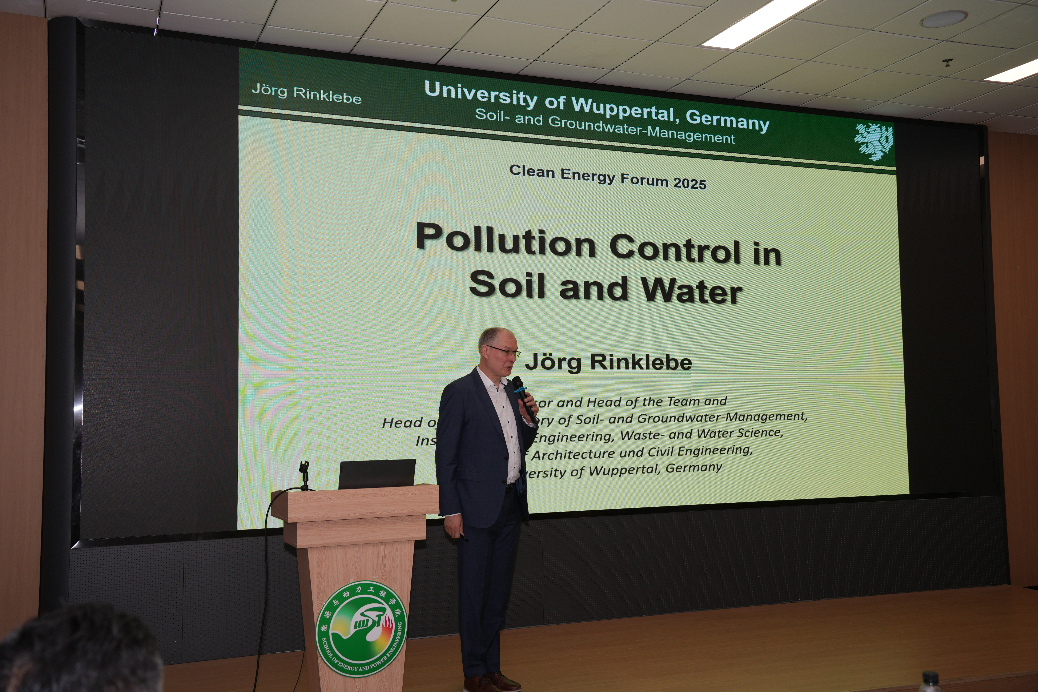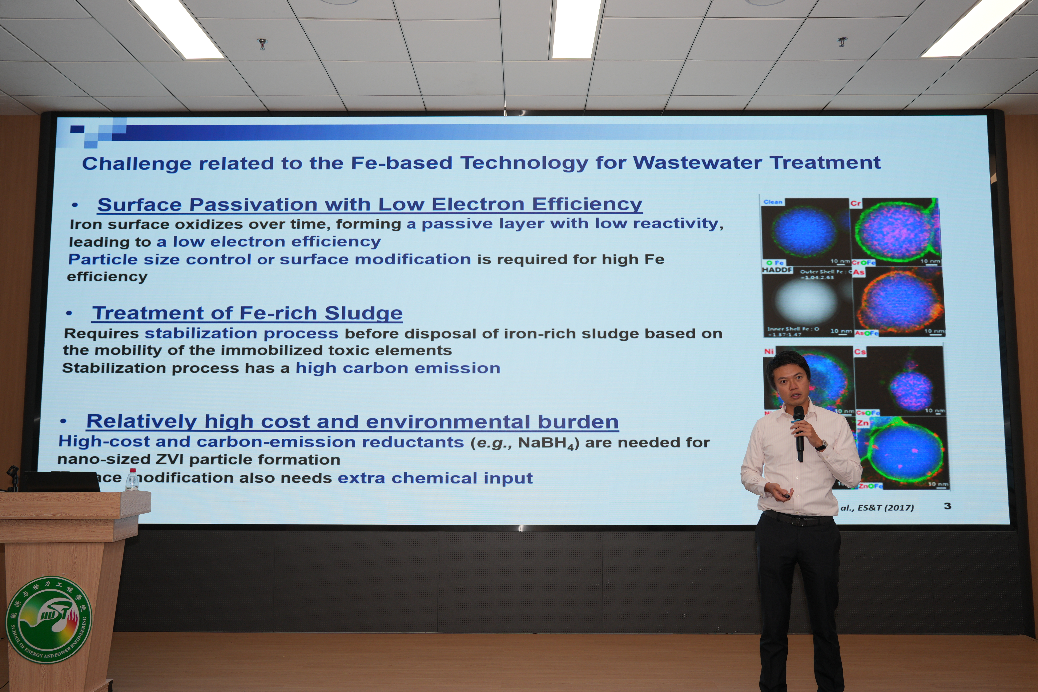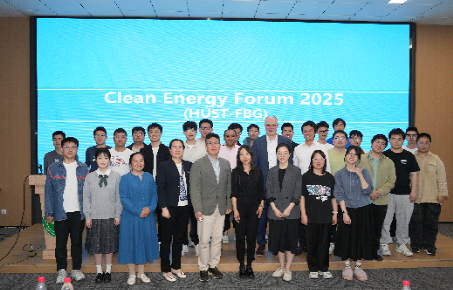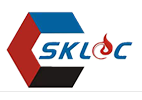In order to broaden the international perspective of graduate students, cultivate global competencies, and enable them to understand more about the current research status and research frontiers worldwide, the Clean Energy Forum was held successfully at the Conference Room of the Clean Energy Building on April 24th, 2025. Prof. Yong Sik Ok, from Korea University, South Korea, Prof. Jörg Rinklebe from the University of Wuppertal, Germany, and Prof. Dan Tsang from Hong Kong University of Science and Technology, were invited to give special lectures. The forum was chaired by Prof. Haiping Yang and Postdoctor Dr. Junjie Zhang, and attended by more than 60 students and faculty members, including Prof. Jingai Shao, Prof. Yang Yang, and Associate Prof. Xiong Zhang.

First, Professor OK shared “Sustainable Biochar: Market Development and Commercialization to Achieve ESG Goals”, giving a detailed presentation on the current research status of biochar. He introduced the trend of biochar research, pointed out importance of the feedstock quality and properties, and highlighted the key breakthroughs in the potential for integration of biochar across diverse industries and the associated emerging business opportunities within the global biochar market. On this basis, he introduced several application methods, existing development barriers and corresponding solutions of biochar.

Then, Prof. Jörg Rinklebe gave a lecture on “Pollution control in soil and water”. Firstly, he introduced sources and cycle of various toxic elements in the ecosystem, with emphasis on the distribution of several heavy metal elements in the world, and lead to a suitable amendment–biochar, which could stabilize those toxic metals in the soil even under dynamic redox conditions. Taking rice cultivation as an example, he proposed that promoting the removal of heavy metals by adding biochar to the soil, achieved a better effect of pollutant removal and explored its mechanism, eventually discovering a wide applicability and effective soil amendment.

Finally, Prof. Dan Tsang delivered a lecture on “Mineral-biochar design for reducing environmental burden of industrial wastewater treatment”. He introduced an efficient biochar material for sustainable decontamination. Based on Iron-based technology, he combined iron and manganese particles with biochar and designed an efficient material, which prevents the zero-valence iron from fast passivation and facilitates the electron transfer through graphitic biochar layer. This approach has higher pollutant absorption capacity, higher stability and lower carbon emissions. Through this new type of mineral-carbon composite designs, a more sustainable wastewater treatment path can be achieved.

These lectures have important guiding significance for the students' research work. The students had opportunities to communicate with globally recognized researchers. This forum expanded their research ideas and international perspectives, improved their writing skills through analysis of high-impact publication strategies, and honed their English proficiency through exchanges with foreign scholars. These lectures are of great help to the future development of graduate students.





